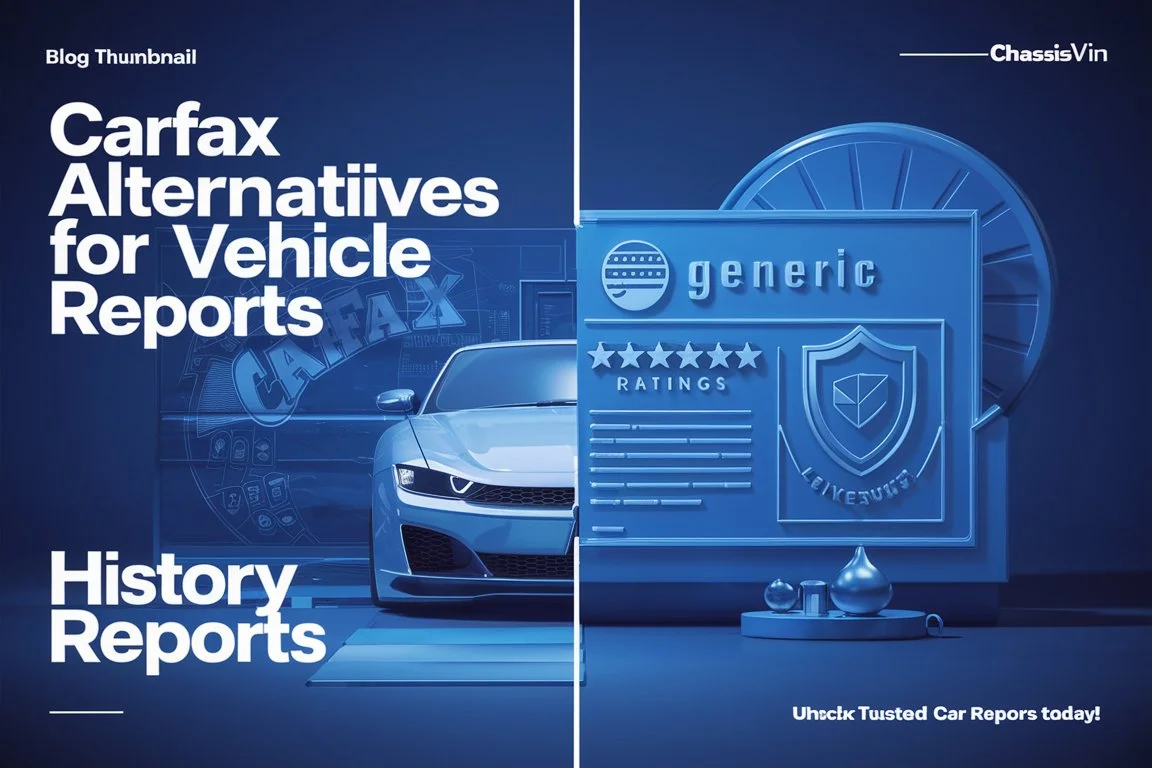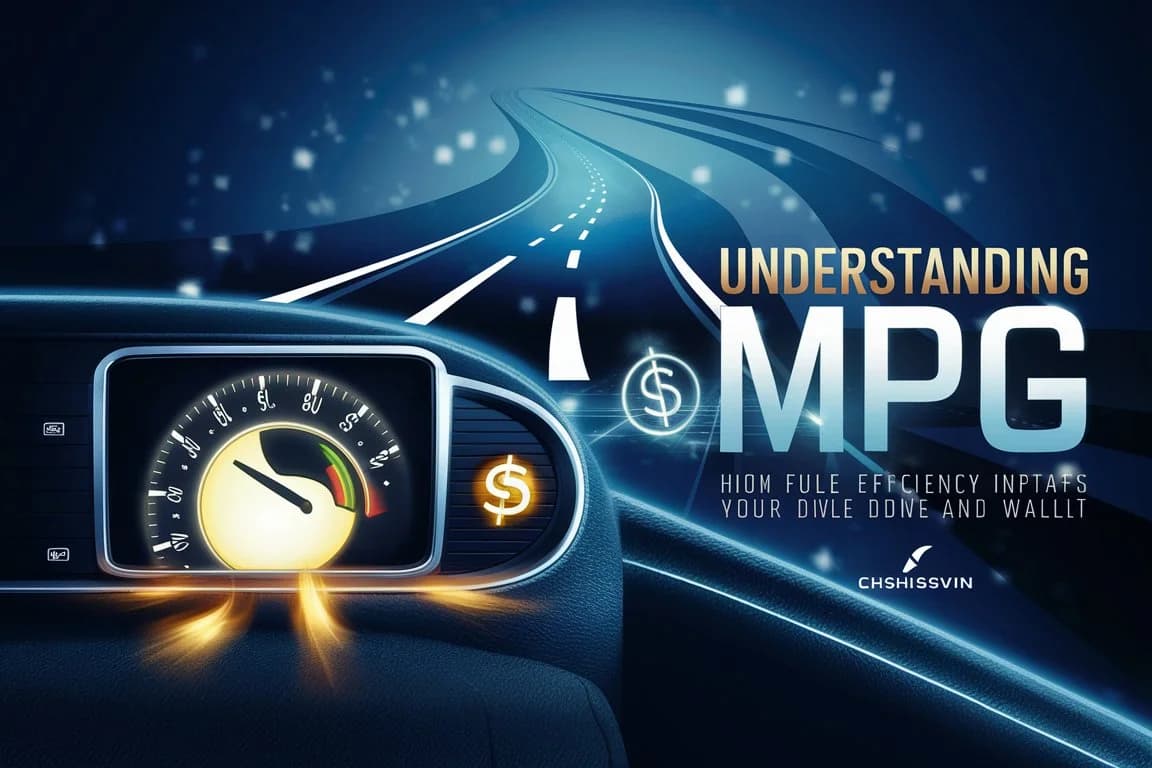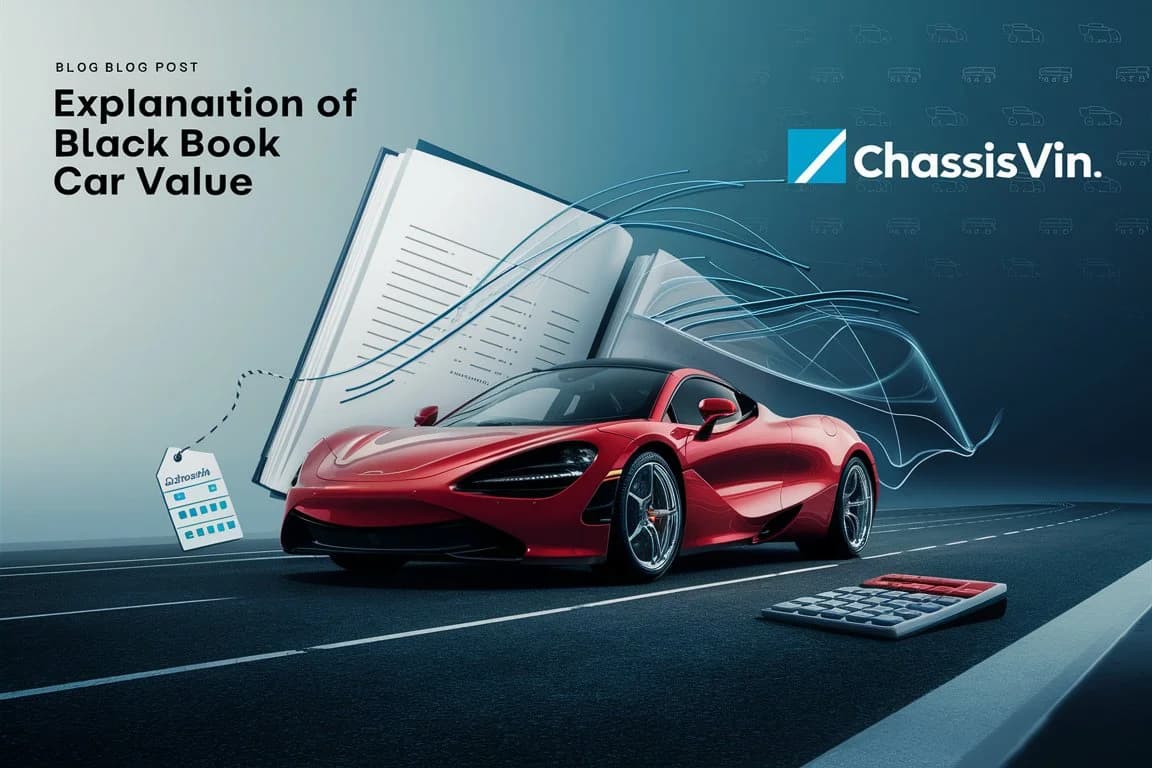Branded Title on a Car: Meaning, Pros, & Cons Explained
Learn everything about branded titles on cars, including their meaning, types, risks, and whether buying a car with a branded title is worth it. Understand how to find a branded title and what it means for insurance.
What Is a Branded Title? What It Means, Types, and Risks
A branded title is a designation on a vehicle's title that indicates it has been significantly damaged, altered, or declared a total loss by an insurance company. When a vehicle has a branded title, it could have been involved in a severe accident, experienced flood damage, or suffered other significant issues that render it unsafe or uneconomical to repair. It's crucial to understand the implications of buying a branded-title car, including the risks and the specific types of brands that can be applied to a title. In this article, we'll break down the meaning, types, and risks of branded titles so you can make an informed decision.
Key Takeaways
- A branded title indicates significant damage or alteration to a vehicle, such as from a collision or water damage.
- Different types of branded titles exist, each reflecting the specific issue the car has faced.
- Branded titles can affect a vehicle's resale value, insurance options, and safety.
- It’s essential to verify if a car has a branded title before purchasing, using resources like a VIN decoder.
Types of Branded Titles
There are several types of branded titles, each designating a different issue with the vehicle. Understanding these can help you assess the condition and value of the car you're considering buying. Below, we'll explore the most common types of branded titles:
Altered Odometer
An altered odometer title is issued when the vehicle’s odometer has been tampered with, often to make the car appear to have fewer miles than it actually does. This is illegal in many states and can drastically reduce the vehicle's value. Buyers should be particularly cautious with these titles as they may indicate fraudulent activity. Always verify mileage using a VIN decoder to ensure accuracy.
Rebuilt Title Brand
A rebuilt title is issued for cars that were previously declared a total loss by an insurance company due to severe damage but have been repaired and deemed roadworthy again. While these vehicles are legally allowed to be driven, they often come with hidden risks. Repair work might not have been performed to the highest standards, and the vehicle’s safety or longevity could be compromised. However, rebuilt title cars are typically less expensive than their clean-title counterparts, making them an appealing option for budget-conscious buyers.
Salvage Branded
A salvage title is issued when a car is deemed a total loss by an insurance company due to significant damage from an accident, fire, or other factors. These cars are often not safe to drive in their current state. A salvage-branded car typically needs extensive repairs before it can be returned to the road. Buying a salvage car may be tempting for those looking for a project car, but it comes with substantial risks and can be costly to repair and insure.
Water Damage Brand
Water damage can result from floods or other water-related incidents, often leading to significant internal damage to the vehicle’s systems. A car with a water damage brand has usually been exposed to conditions that compromise its electrical and mechanical components. These vehicles are often considered high-risk, as flood damage can cause problems that aren't immediately visible but may lead to expensive repairs down the line.
Pros and Cons of Branded Titles
Like any major purchase, buying a car with a branded title comes with its own set of advantages and disadvantages. Understanding the pros and cons is vital to making a sound decision, whether you're considering a vehicle for personal use or as an investment.
Pros
- Lower Purchase Price: Vehicles with branded titles are usually priced lower than those with clean titles, making them an attractive option for buyers on a budget.
- Potential for Investment: If you're knowledgeable about car repairs, purchasing a branded-title car can be a profitable investment if you’re able to restore it and sell it at a higher price.
- Repair Opportunities: Some buyers prefer branded-title cars for DIY projects, as they can customize and repair the vehicle according to their preferences.
Cons
- Lower Resale Value: Branded-title cars typically have a much lower resale value compared to clean-title vehicles, even after repairs.
- Insurance Challenges: Insuring a branded-title car can be more difficult and expensive. Many insurance companies may offer limited coverage or higher premiums.
- Potential Hidden Damage: While some branded-title cars are repaired properly, others may have hidden issues that could lead to safety concerns or costly future repairs.
Pros & Cons of a Branded Title
Ultimately, whether buying a branded-title car is a good decision depends on your priorities. If you’re looking for a low-cost option and are prepared for the risks and potential repairs, a branded-title car can be a bargain. However, if you're concerned about long-term value, safety, or ease of insurance, you might want to consider a clean-title vehicle instead.
How To Find Out If a Car Has a Branded Title
The easiest way to find out if a car has a branded title is by checking the vehicle’s VIN (Vehicle Identification Number). Various online tools and services can decode the VIN and provide detailed history reports, including whether the car has ever been branded. Using a VIN decoder is a quick and reliable method to gather this critical information before making a purchase.
Resources like ChassisVin's VIN Decoder can help you quickly access a detailed vehicle history report, including any branding.
What Is the Difference Between a Branded Title and Salvage Title?
A branded title is a broad category that includes various types of titles indicating a car has suffered damage or issues. A salvage title, specifically, refers to a car that has been declared a total loss by an insurance company due to significant damage. Not all branded titles are salvage titles, but all salvage titles are branded titles. Understanding the difference is crucial when evaluating a vehicle's condition and value.
Can Branded Titles Get Insured?
While insuring a branded-title car is possible, it can be more complicated than insuring a clean-title car. Some insurance companies may refuse to cover branded-title cars, while others may only offer limited coverage. It’s essential to research insurance options and be prepared for higher premiums or restricted coverage if you buy a car with a branded title. Check with your insurance provider beforehand to avoid surprises.
Is Buying a Car with Branded Title Worth It?
Buying a car with a branded title can be worth it if you’re prepared for the risks and challenges involved. If you can repair the car or are okay with the lower resale value, a branded-title car may save you money upfront. However, if you’re not familiar with repairs or want a hassle-free ownership experience, it may be best to steer clear of branded-title vehicles.
The Bottom Line
Branded-title cars come with both advantages and risks. While they can offer significant savings, they often involve extra steps for repair, insurance, and resale. Before purchasing a branded-title vehicle, make sure you understand the specific brand it carries, the condition of the car, and whether you can manage the potential costs involved in repairing and insuring it. Always use tools like a VIN decoder to get the most accurate and up-to-date information before making your decision.
How to Spot a Car with a Branded Title
Spotting a car with a branded title before purchase can save you from dealing with unexpected repairs and complications. While some branded-title vehicles may appear as normal cars at first glance, there are several ways to identify potential issues. Here's how you can spot a branded-title vehicle:
- Check the Title: The most direct way to know if a car has a branded title is to check the title itself. If you already have the title, look for terms like 'salvage,' 'rebuilt,' or 'flood.' These terms indicate the type of damage or issue the car has faced.
- Request a Vehicle History Report: Using the car’s VIN, you can request a report from various online services. These reports will often list whether the vehicle has been branded, the reason for the brand (e.g., flood damage or accident), and its repair history.
- Inspect the Car's Condition: A branded-title car might not always show visible signs of damage, but you should look for indications of poor repair work or mismatched parts. Unusual paint jobs, misaligned body panels, or inconsistent wear can suggest the car has been in a significant accident or flood.
- Consult with a Mechanic: If you're uncertain, a mechanic can inspect the vehicle for hidden damage. They can check the frame, the engine, and the electrical systems for signs of past damage that could affect the car's longevity or safety.
How Branded Titles Impact Car Financing
Financing a branded-title car can be more challenging than financing a clean-title vehicle. Due to the associated risks, banks and other financial institutions may have stricter requirements or offer lower loan amounts. Here’s how branded titles can affect car financing:
- Limited Loan Options: Many traditional banks and credit unions may refuse to finance cars with branded titles. However, some specialized lenders or subprime lenders may offer loans, albeit with higher interest rates.
- Lower Loan Amounts: If you can secure financing for a branded-title car, the loan amount may be lower than what you'd receive for a clean-title vehicle. Lenders often consider the vehicle's resale value, and branded-title cars generally have a lower resale value due to their history of damage.
- Higher Interest Rates: Because branded-title cars are considered riskier investments, you may face higher interest rates on your loan. Lenders factor in the possibility that the car’s value may continue to decrease over time or that it may require more repairs.
- Down Payment Requirements: Lenders may require a larger down payment for branded-title vehicles to offset their higher risk. The larger down payment may make the car more affordable in the long run, but it requires more money upfront.
If you're planning to finance a branded-title car, make sure to compare offers from different lenders and be aware of the potential challenges that could arise during the process. It's also worth considering alternative financing options such as personal loans, which may offer more flexibility in terms of approval.
The Legal Implications of Buying a Car with a Branded Title
When purchasing a car with a branded title, it's important to be aware of the legal implications. Branded-title vehicles are not necessarily illegal to own, but they come with legal considerations that buyers should understand before finalizing the purchase. Here's what you need to know about the legal side of buying a branded-title car:
- Disclosure Laws: In many states, sellers are legally required to disclose the title status of the vehicle. If a car has a branded title, the seller must inform the buyer. Failure to disclose this information can lead to legal repercussions, including potential fraud claims. Make sure that the title details are disclosed to you in writing.
- State Regulations: Different states have varying laws regarding branded titles. Some states may require additional inspections for cars with branded titles before they can be driven or registered. In certain cases, a branded-title car may need to pass a thorough inspection to ensure it is roadworthy.
- Title Transfer Process: Transferring the title of a branded vehicle may be more complicated than transferring a clean title. Ensure that you complete all necessary paperwork when buying a branded-title car, including the proper forms for registration and title transfer. The process may take longer, and you'll need to ensure that all fees are paid, especially if repairs have been made to restore the vehicle's safety.
- Insurance Implications: Insurance policies for branded-title vehicles may be more expensive or difficult to obtain. Some insurers may refuse to cover a car with a branded title, while others may offer limited coverage options. Always check with your insurance provider before purchasing a branded-title car to confirm coverage availability and costs.
Consulting with a legal professional or a car dealership experienced in branded-title vehicles can help you navigate these legal issues. Always ensure you're fully informed about the car's legal standing to avoid surprises down the road.
Repairing a Branded Title Car: What You Need to Know
If you've purchased a branded-title vehicle or are considering doing so, you may want to repair it. Repairing a branded-title car requires careful consideration of the costs and the potential for restoring the car to a safe and roadworthy condition. Here's what you should know before starting repairs:
- Repair Costs: Repairing a branded-title vehicle can be expensive, especially if the damage is extensive. For example, restoring a car with a salvage title to a roadworthy condition could cost more than buying a similar clean-title vehicle. It's important to get detailed estimates from mechanics before committing to the repair process.
- Parts Availability: Depending on the car's make and model, finding replacement parts could be challenging or costly. If the vehicle has been severely damaged, especially in the case of water or fire damage, certain parts may be hard to come by. Aftermarket parts can be an alternative, but they may affect the vehicle’s resale value.
- Workmanship: The quality of the repairs done on the branded-title car is critical to its safety and functionality. While some vehicles are rebuilt to factory standards, others may have repairs that compromise the car's integrity. Make sure the repairs are done by professionals and that you receive receipts for all work performed.
- Inspection and Certification: Once the repairs are completed, many states require the vehicle to undergo a certification or inspection process to confirm that it is roadworthy. This may include a detailed inspection of the vehicle's frame, safety systems, and overall structural integrity. Only after passing these tests can the vehicle be registered and legally driven again.
If you plan to repair a branded-title vehicle, be prepared for ongoing maintenance and additional costs, as these cars may continue to present issues even after repairs. It’s essential to weigh the repair costs against the potential savings on the car’s price and determine if the investment is worth it in the long run.
The Impact of Branded Titles on Car Insurance and Coverage
When purchasing a branded-title vehicle, one of the most significant factors to consider is how it will affect your car insurance. Insurance companies view branded-title cars as high-risk, which can impact your ability to get coverage and the cost of your premiums. Here's how branded titles can affect car insurance:
- Limited Coverage Options: Many insurance companies may offer limited coverage for branded-title cars, especially if the vehicle has a salvage or water damage brand. Comprehensive and collision coverage may not be available, leaving you with only liability coverage, which won't protect you in the event of an accident or theft.
- Higher Premiums: If you can secure coverage for a branded-title vehicle, the premiums are often higher than they would be for a clean-title car. This is due to the perceived risk of insuring a vehicle that has been significantly damaged in the past.
- Difficulty in Finding Coverage: Not all insurance companies will insure branded-title vehicles, especially those with salvage or water damage brands. It's important to shop around and find an insurer that is willing to cover your branded-title car. Some companies specialize in high-risk cars and may offer more flexible options for vehicles with branded titles.
- Rebuilding or Repairing Coverage: Some insurers may provide coverage for the repairs you make to a branded-title car, but this depends on the type of insurance policy and the level of coverage you've purchased. If you plan to restore the car to a clean-title status, ensure that your insurance policy covers any repairs or upgrades you make.
Before buying a branded-title car, make sure to research insurance options thoroughly. Reach out to multiple insurance providers to compare rates and coverage terms to ensure that you can afford and obtain the necessary protection for the vehicle.
Our Services
Window Sticker
Print window sticker for your vehicle
VIN Decoder
Decode any vehicle manufacturer
Classic VIN Lookup
Decode VINs for classic and vintage vehicles
License Plate Lookup
Search license plate information
VIN Check
Decode any vehicle in US states
Build Sheet by VIN
Get detailed build sheet for your vehicle
Dealers
Unlimited vehicle history reports
Paint Code by VIN
Find your vehicle's exact paint color code
VIN Explorer
Explore detailed vehicle information by VIN
Warranty Check
Check warranty information by VIN
Vehicle Recalls
Understanding Vehicle Recalls: A Complete Guide

Ethan J. Caldwell
Ethan James Caldwell is a graduate of George Washington University (GW). Born and raised in Washington, Ethan has had a lifelong passion for cars, motorcycles, and all things automotive. From a young age, he was captivated by the mechanics, design, and culture surrounding vehicles, which eventually inspired his career. Ethan currently drives a silver 2005 Honda Accord, a testament to his appreciation for reliable and timeless vehicles.
Frequently Asked Questions
A branded title is a designation on a car's title indicating that it has been severely damaged or declared a total loss by an insurance company. This can be due to accidents, flood damage, or other significant issues.
You can find out if a car has a branded title by checking its Vehicle Identification Number (VIN) using online VIN decoders, such as the one provided by ChassisVin.
Yes, but insuring a branded-title car can be more difficult and expensive. Some insurance companies may offer limited coverage or charge higher premiums.
Buying a car with a branded title can be worth it if you’re prepared for the potential risks, repairs, and lower resale value. It’s essential to weigh the upfront savings against the possible long-term costs.
A salvage title is a type of branded title given to vehicles that have been declared a total loss by an insurance company due to significant damage. All salvage titles are branded titles, but not all branded titles are salvage titles.
Our Blog Articles
Discover insights about vehicle history, maintenance, and buying guides

Carfax Alternatives for Vehicle History Reports: Your Best Options
Explore the best Carfax alternatives for vehicle history reports. Get detailed reports on accidents, ownership, and more. Find the right choice for you.

Understanding MPG (Miles Per Gallon) in Cars: A Complete Guide
Learn what MPG means, how it's calculated, and how to improve your car's fuel efficiency. Get the most out of your vehicle's MPG with ChassisVIN.

Explanation of Black Book Car Value: Your Guide to Vehicle Valuation
Understand Black Book car values. Learn how they work, who uses them, and how they compare to other resources. Get the info you need for informed decisions.
